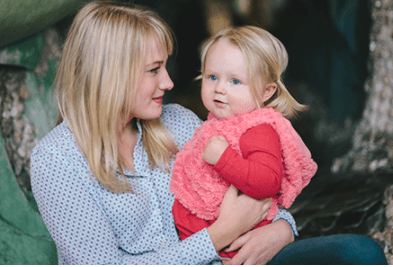A few years ago, when my middle daughter was three, we were discussing her favorite preschool job: leading the lunchtime prayer. I said that maybe she could be a pastor, like our own pastor Todd, when she grew up.
Her eyes lit up and she proclaimed: “Yes! I will be pastor Todd! And I will live in his house! And I will be Olivia’s daddy!”
I got a good chuckle out of that, as did pastor Todd when he heard the story.
But the truth is, as the reality sets in that she can’t actually be pastor Todd, my daughter isn’t likely to see many women as pastors—women who can serve as her role models. While numbers are hard to pin down, probably only 10% of senior pastors are women — which means that even denominations that ordain women don’t see anything close to equal gender representation in leadership.
In more personal and anecdotal terms, even as an egalitarian of several years, this summer is the first time I’ve heard women preach and been in a church with a woman pastor.
I’m thirty-six.
Although I’ve been an egalitarian for years now, my journey has been admittedly slow. My husband has always supported the full participation of women in the church, and I gradually came to agree with him. By the time I agreed, we were already committed to a church that didn’t ordain women, and neither of us were willing to leave a church we otherwise loved.
Over time, however, the restrictions on women, while minimal at our church, chafed more and more. So when we moved to a new state, we hoped for a church in our denomination that ordained women.
We did find one. But it was a tiny plant, and our priest’s theoretical support of ordaining women never came to a practical test. As much as I appreciated his support of women, I wanted to actually see women preaching and serving.
So when we packed our boxes yet again this summer, we were thrilled to discover a church not just theoretically affirming of women in ministry but actually committed to giving women those opportunities. One of our priests is a woman, as is our deacon, and women routinely preach.
During our first service at the church, a woman preached—the first time I had ever heard a woman preach. I wept. Not because the sermon was convicting or earth-shattering—although it was a good sermon—but because everyone treated a woman preaching as perfectly normal.
In the three months since then, I have heard multiple women preach. Every time, I’m struck by how these sermons are both utterly normal and utterly extraordinary: normal because these sermons are sermons, like hundreds of others I have heard. But extraordinary because these women are using their gifts and insights in ways that I have never witnessed in the church.
I see two specific benefits from gender diversity in my current church: representation and connection.
My three year-old clearly had some misunderstanding about what it meant to be a pastor. But in another sense she wasn’t far off: we tend to use what we see as a guide to what is possible. That’s a big part of why representation is so important to me. I want my daughters to see women serving, preaching, and leading in the church. They’re still in elementary school so I have no idea whether God will call them to formal ministry, but I want them to grow up knowing that they have a place at every level of the church.
At this point in my own life, however, seeing women in ministry isn’t going to change my mind. But I’m finding myself deeply appreciating the variety of viewpoints and angles in the sermons. I’ve known for a long time that a diversity of voices benefit everyone—and now I’m experiencing that as I connect in new ways with the sermons.
I’ve fortunately never been in a church where the preachers leaned heavily on male-coded imagery (hunting, football, the military, etc.) in their sermons. But even the most sensitive of male preachers simply doesn’t have the same life experience as a woman, the same experience as me.
So when my female pastor recently preached on Mary and Martha, for the first time I heard this story taught by someone who has actually felt the pressure that Martha did, as a hostess and a woman, to prepare food and extend hospitality. Her sympathetic reading of Martha eased some of the guilt I typically feel when I hear sermons on this passage, and her challenges to let go of anxiety felt more applicable to my life since they came from someone who has felt the same gendered pressures.
Hearing this sermon from a woman—who even in the twenty-first century can feel sympathy for first-century Martha’s role as hostess to over a dozen guests—helped me to better understand Jesus’ words to Martha. This is the benefit of diversity in the pulpit: different life experiences bring fresh perspectives to Scripture and new insights to listeners, inspiring them to connect with Scripture and with God in new ways.
Gender is, of course, one of many ways we can bring that vital diversity into churches. The evangelical church in America needs to work harder to represent God’s entire creation. Because those of us learning in the pews or wondering where we might serve in the church benefit from seeing ourselves and our experiences reflected in those who serve, lead, and preach.












